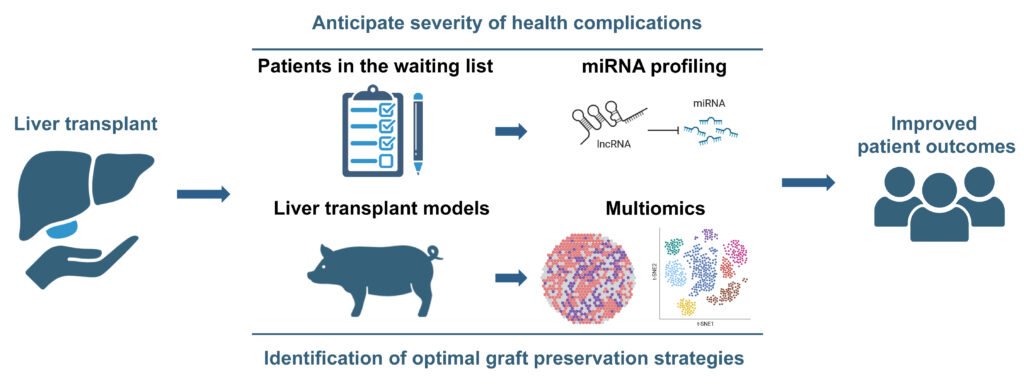Accueil » Liver transplantation
In the context of a growing increase in chronic diseases and liver cancer, liver surgery and transplantation represent a major curative therapeutic option. Because of the severity of the underlying liver disease, surgical care remains difficult and not all patients registered for transplantation are able to receive a liver transplant.
Optimising the conditions of access to transplantation and surgical techniques is a major challenge for patients with severe liver disease.

No results found.
2018 Jun -
J Hepatol
PMID : 29410287
No-touch multibipolar radiofrequency ablation vs. surgical resection for solitary hepatocellular carcinoma ranging from 2 to 5 cm
Mohkam et al.
2020 May -
New England J Med
PMID : 32402160
Atezolizumab plus Bevacizumab in Unresectable Hepatocellular Carcinoma
Finn RS et al.
Institut d’hépatologie de Lyon, 2023